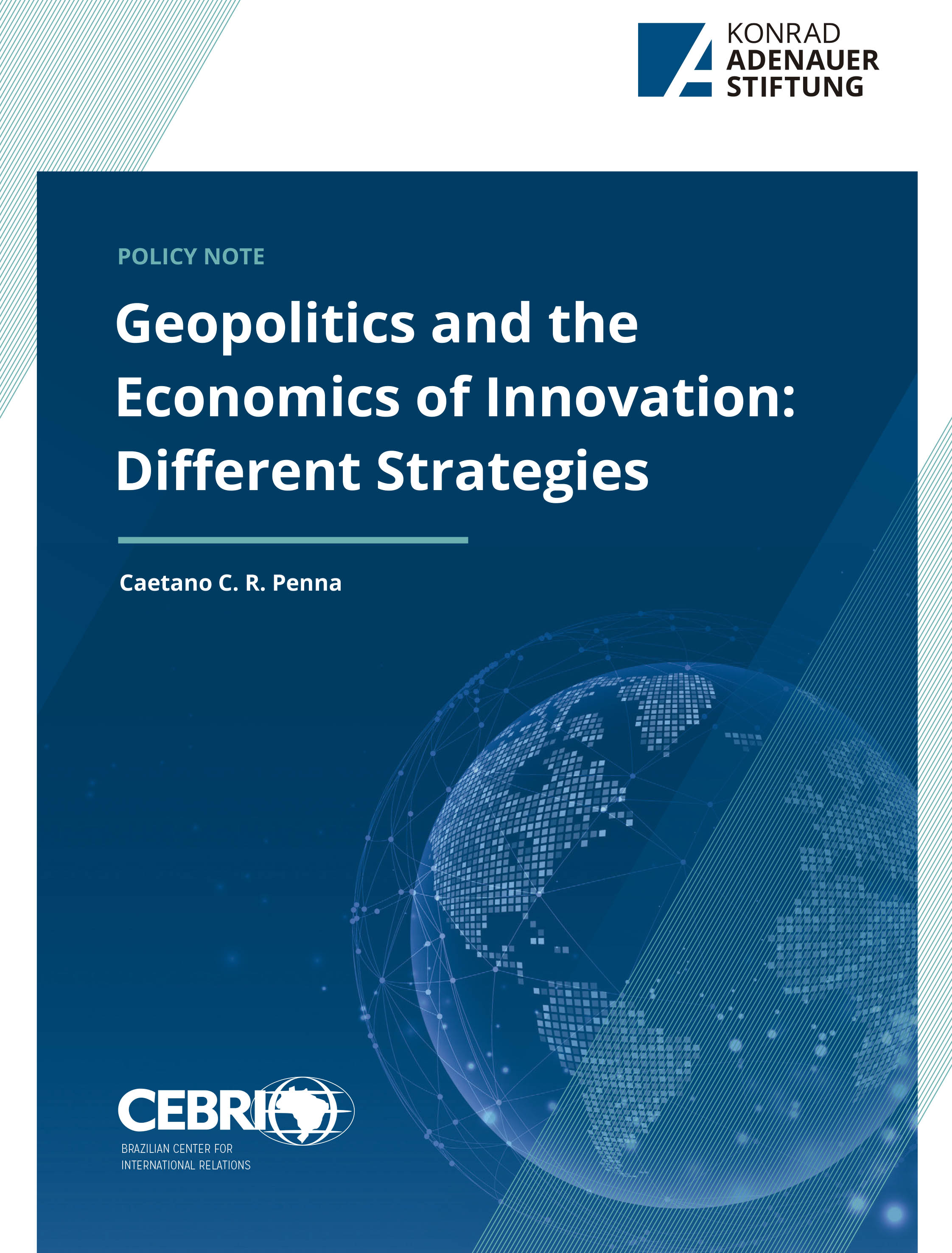Context Notes
Geopolitics and the Economics of Innovation: Different Strategies
- 30 november 2020
Geopolitics and the Economics of Innovation: Different Strategies
By Caetano C. R. Penna, Institute of Economics of the Federal University of Rio de Janeiro Centre for Global Challenges of the Utrecht University
There are several ways to define the different “technological eras” since the original industrial revolution of the late XVIII century. Some authors focus on the continuity of the characteristics that define the industrial modernity, contrasting the technological developments of the past three centuries with the socio-, techno- and economic organization of the mostly agrarian world that preceded it.
Others identify successive waves of industrial or technological “revolutions”, which would follow recurrent patterns of emergence and diffusion and yet create unique impacts on established structures. Notwithstanding these different definitions, most authors agree that the digital innovations of the last 40 years have been exceptional: despite the risk of ample disruption (for incumbent firms, regions and nations), these innovations open up opportunities for widespread socio-economic development.
Nevertheless, associated with these opportunities is the risk of hegemonic conflicts. This policy note will discuss economic and political aspects and dynamic trends related to the diffusion of disruptive digital technologies amidst the process of globalization of value chains. It will take into account the offshoring of manufacturing capacity from the West to the East, the re-emergence of active industrial and innovation policies, and geopolitical aspects, which are exemplified by the trade and technological conflict between the US and China, exacerbated in the past few years.
It will be argued that the current SARS-CoV-19 pandemic has worked as a magnifying glass for such trends with important implications for the governance of the trade system and of the digital technologies as well as for the prospects for an innovation based sustainable global development path. The policy note ends with brief reflections on the repercussions for developing countries, in general, and for Brazil, in particular.
Geopolitics and the Economics of Innovation: Different Strategies
By Caetano C. R. Penna, Institute of Economics of the Federal University of Rio de Janeiro Centre for Global Challenges of the Utrecht University
There are several ways to define the different “technological eras” since the original industrial revolution of the late XVIII century. Some authors focus on the continuity of the characteristics that define the industrial modernity, contrasting the technological developments of the past three centuries with the socio-, techno- and economic organization of the mostly agrarian world that preceded it.
Others identify successive waves of industrial or technological “revolutions”, which would follow recurrent patterns of emergence and diffusion and yet create unique impacts on established structures. Notwithstanding these different definitions, most authors agree that the digital innovations of the last 40 years have been exceptional: despite the risk of ample disruption (for incumbent firms, regions and nations), these innovations open up opportunities for widespread socio-economic development.
Nevertheless, associated with these opportunities is the risk of hegemonic conflicts. This policy note will discuss economic and political aspects and dynamic trends related to the diffusion of disruptive digital technologies amidst the process of globalization of value chains. It will take into account the offshoring of manufacturing capacity from the West to the East, the re-emergence of active industrial and innovation policies, and geopolitical aspects, which are exemplified by the trade and technological conflict between the US and China, exacerbated in the past few years.
It will be argued that the current SARS-CoV-19 pandemic has worked as a magnifying glass for such trends with important implications for the governance of the trade system and of the digital technologies as well as for the prospects for an innovation based sustainable global development path. The policy note ends with brief reflections on the repercussions for developing countries, in general, and for Brazil, in particular.


